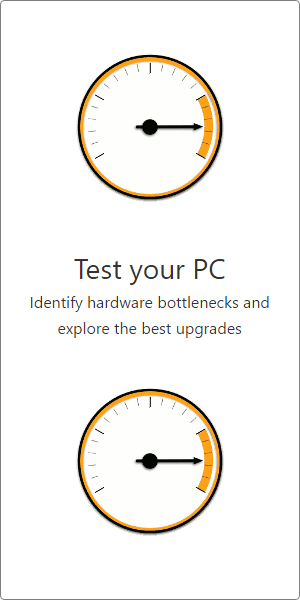 CSGO CSGO
Dust 2 1080p Max |
284 EFps | Better CSGO EFps. |
233 EFps | |||
 GTAV GTAV
Franklin & Lamar 1080p Max |
106 EFps | +1% | 105 EFps | |||
 Overwatch Overwatch
Temple of Anubis 1080p Max |
139 EFps | Slightly Better Overwatch EFps. |
130 EFps | |||
 PUBG PUBG
M249 Training 1080p Max |
139 EFps | Better PUBG EFps. |
124 EFps | |||
 Fortnite Fortnite
UserBenchmark Island 1080p Max |
139 EFps | 141 EFps | +1% |
Effective Speed
+2%
Poor: 76%
Great: 100%
SPEED RANK: 167th / 1468
Poor: 78%
Great: 96%
SPEED RANK: 180th / 1468
| Effective Speed
Effective CPU Speed |
88.4 % | +2% | 87 % |
External Data: 1080p
+2%
Average Score
+7%
Overclocked Score
+2%
Value & Sentiment
+192%
Nice To Haves
+23%
Specifications
| Series
CPU Architecture |
Coffee Lake | Zen2 | ||||
| Socket
Motherboard Socket |
FCLGA1151 | AM4 | ||||
| Graphics
Integrated Graphics |
UHD 630 | None |
Conclusion
Average Bench 88.4%
Average Bench 87%
User Builds
746,287
141,122
Systems with these CPUs
Top Builds that include these CPUs
Frequently Asked Questions
Processors FAQ
ALL FAQs »


